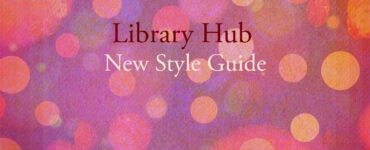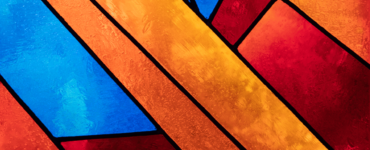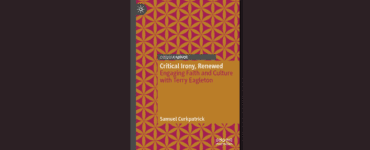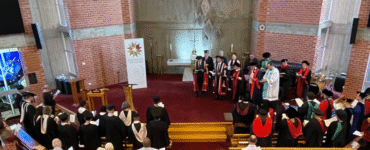A summary of highlights from the conference organisers:
Emeritus Professor Joseph A. Camilleri OAM
La Trobe University
Chair, Earth@Peace Project
Reverend Dr Gordon Preece
Director, Centre for Religion & Social Policy
University of Divinity
The Earth@Peace project under the auspices of The University of Divinity Centre for Religion & Social Policy (RASP) with partners Pax Christi, Ethos, Australian Research Theology Foundation, Social Policy Connections and several other supporters, reached a significant milestone recently.
The public events of the project, including a two-day Conference, an evening Public Forum and a Cultural Evening (22-24 April) were a great success with all 240 conference tickets selling out well before the end of the early-bird pricing period. Amongst the 200 attendees at the Public Forum was Victorian Literary Prize winner Beyrouz Boochani, direct from Manus Island, and Sister Patricia Fox, recently deported from the Phillipines.
These events have helped shape an important conversation integrating the thinking of several religions and engagement around issues of peace, justice and ecology, which are often siloed in political, public and academic discourse.
A number of outstanding presentations covered different aspects of the Conference theme. Some focused on our dire ecological predicament and its future implications (e.g. Freya Mathews), others on Australia’s rich Indigenous heritage (e.g. Bruce Pascoe, Naomi Wolfe), others still on gender and patriarchy (e.g. Canadian eco-feminist Prof Heather Eaton). An artistic edge was provided at the Cultural Evening on Anzac Day Eve by William Kelly’s Just Art exhibition, poetic responses, Climate Change Angels etc. This will be turned into an accessible artistic book.
All attempted to rethink in dynamic ways what we understand by peace, its close interconnections with justice and care of the Earth, and the place of dialogue in cultivating the qualities and energies needed to respond creatively to the multifaceted challenges we presently face.
Perhaps most pleasing was the participants’ widely shared sense that this has been an instructive, in some cases illuminating, and above all inspiring experience – from which we expect a great deal to emerge in the coming months and years.
Video of Conference Sessions
Access to a comprehensive selection of videos covering a diverse array of speakers and topics from the conference and public forum is available on the Earth@Peace website: www.earthatpeace.org.au. The website also features abstracts of the presentations, photos and reports of seven Working Groups on the following topics:
- Developing a culture consistent with a vision of a just and ecologically sustainable peace (JESP)
- Education for JESP
- Addressing situations of conflict and violence from a JESP Standpoint
- Peace with the Earth
- A just and ecologically sustainable peace between Indigenous and non-Indigenous Australia
- JESP in the economy/marketplace
- JESP in the sacred texts.
This is a work in progress with many ideas to be further fleshed out, and a number of initiatives, projects and publications expected over the next year.
Watch all Earth@Peace Conference videos
Earth@Peace Public Forum: Impossible Dream or Necessity?
An evening exploring the most critical issues of our time with leading scholars and practitioners from diverse backgrounds. Presentations were followed by Q&A and lively conversation among panel members. The public forum was moderated by Emeritus Professor Joseph Camilleri OAM, La Trobe University.
John Cleary interviews Kevin Clements and Ariel Salleh
Introduction by Dr Gordon Preece
Interviewer: John Cleary
Speakers: Professor Kevin Clements and Associate Professor Ariel Salleh
Keynote Presentations
Professor Heather Eaton
Professor in Conflict Studies program at Saint Paul University, Ottawa, Canada.
Heather Eaton has engaged with inter-religious responses to the ecological crisis, the relationship among ecological, feminist and liberation theologies, and connections between religion and science. She has also been involved in conferences, workshops, teaching and publishing in these areas. Author of This sacred earth at the nexus of religion, ecology and politics.
Professor Bruce Pascoe
Jumbunna Institute for Indigenous Education and Research, University of Technology, Sydney.
Bruce Pascoe is a Bunurong, Yuin and Tasmanian man born in the Melbourne suburb of Richmond. He is a member of the Wathaurong Aboriginal Co-operative of southern Victoria and has been the director of the Australian Studies Project for the Commonwealth Schools Commission. Bruce has had a varied career as a teacher, farmer, fisherman, barman, fencing contractor, lecturer, Aboriginal language researcher, archaeological site worker and editor. His book Fog a Dox won the Young Adult category of the 2013 Prime Minister’s Literary Awards. His most recent book is Dark Emu: Black Seeds: agriculture or accident, which won the NSW Premier’s Book of the Year Award in 2016.
Professor Mark Brett
Professor of Hebrew Bible, Whitley College, University of Divinity
Mark Brett is editor of Journal of Biblical Literature, author of Political Trauma and Healing: Biblical Ethics for a Postcolonial World (2016) and Decolonizing God: The Bible in the Tides of Empire (2008). His edited books include Ethnicity and the Bible (2002) and Colonial Contexts and Postcolonial Theologies: Storyweaving in the Asia-Pacific (with coeditor Jione Havea, 2014).






Add comment